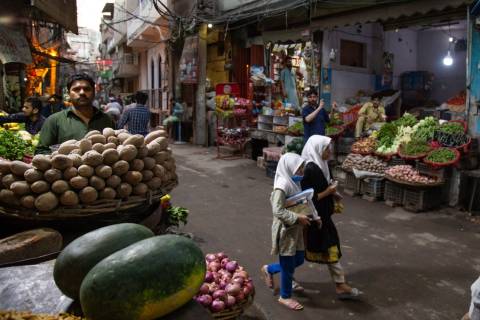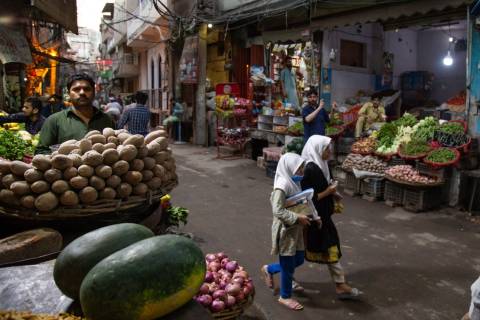(Bloomberg) -- Pakistan’s headline inflation continued to climb in July, as a weak currency stoked prices of food and fuel even as the nation draws close to an International Monetary Fund loan.

Consumer prices rose 24.93% last month from a year earlier, according to data released by the government Monday. That compares with a median estimate for a 23.5% gain in a Bloomberg survey of economists and compares with a 21.33% rise in June.

Food inflation rose 28.77% while transport surged 64.73% in July, according to data. Inflation has reached the highest in 14 years, said Mohammed Sohail, chief executive officer at Topline Securities.
A slump in Pakistan’s currency coupled with a rise in domestic fuel prices and a surge in power tariffs pushed Asia’s second fastest inflation. Pakistan’s rupee fell more than 14% in July -- the worst month since 1989 -- amid a dollar shortage and concern that political uncertainty may delay the IMF bailout.
Authorities are banking on a disbursal of $1.2 billion loan to stave off a potential default. The board of the multilateral lender is expected to meet later this month for a final approval after the staff level agreement.
Pakistan’s central bank will also keep a watch on inflation trajectory when it holds its next monetary policy review on Aug. 22. State Bank of Pakistan has raised rates by 525 basis points since the start of the year to tame prices.
More stories like this are available on bloomberg.com
©2022 Bloomberg L.P.
Author: Kamran Haider
